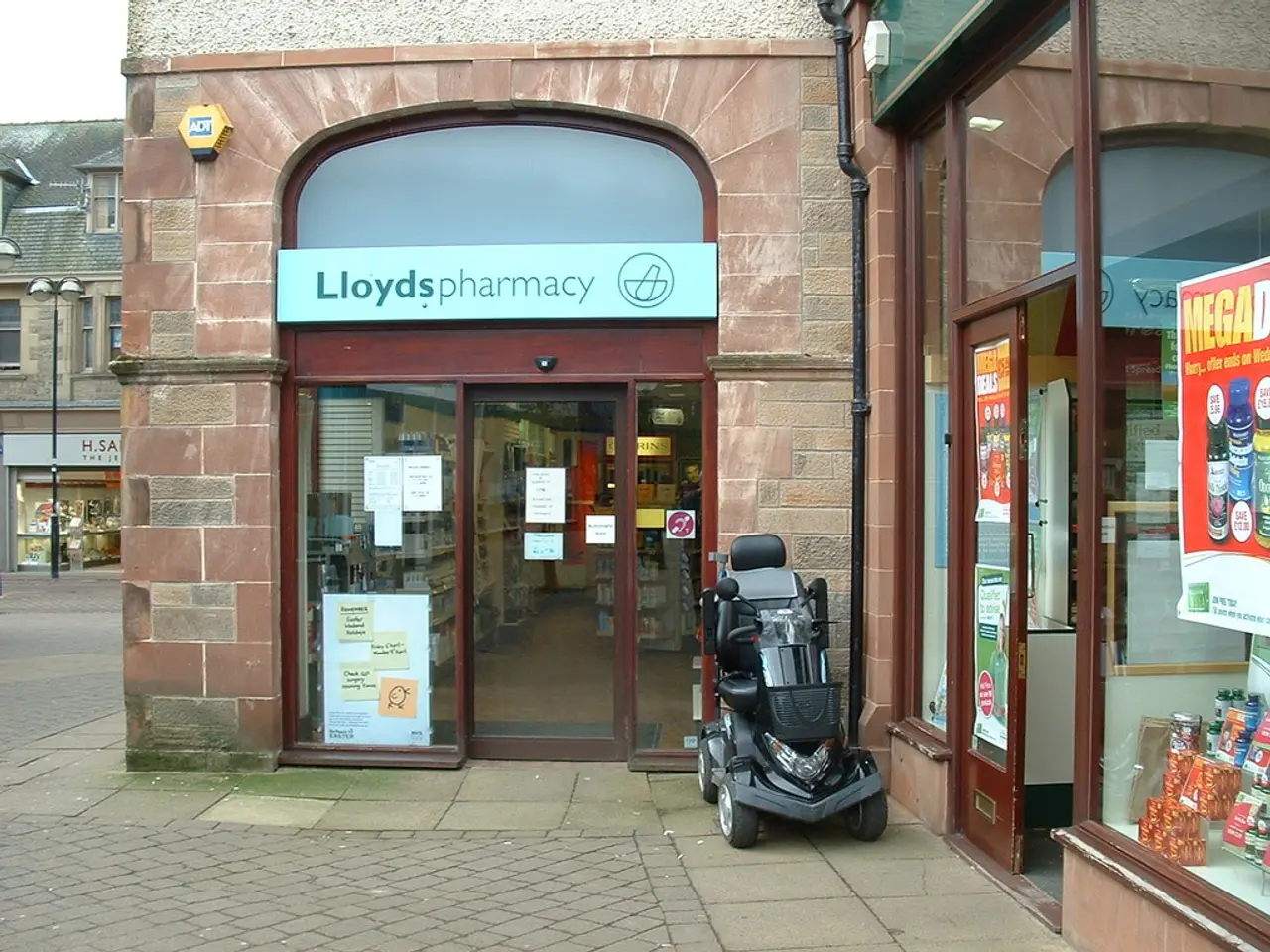Global issue: Counterfeit pharmaceuticals pose a threat everywhere
In the rapidly evolving world of healthcare, the issue of purchasing medicine online from unregulated sources has become a significant concern. The Food and Drug Administration (FDA) in the US issued a warning about this problem in 2023, and in 2024, the World Health Organization (WHO) followed suit, issuing a global alert about fake Ozempic flooding the black market.
The popularity of weight loss medications like Wegovy and Zepbound, which trigger substantial, sustained weight loss, has led to a rise in counterfeit versions. These drugs, originally designed to treat type 2 diabetes, have found a new market in the growing demand for weight loss treatments.
The FDA temporarily allowed the compounding of weight loss drugs to address a product shortage, but some pharmacists used semaglutide salts instead of semaglutide itself, leading to reports of side effects. This incident underscores the risks associated with compounding, a practice where approved medicines are formulated to produce non-regulated "compounds" for individual patients.
Experts and industry groups are concerned that regulators may not be able to keep pace with the speed of counterfeiters. Unregulated pharmaceuticals are being sold via online-only pharmacies, international drug shopping, and organized criminal distributors. Around 1% of people in high-income nations obtain medication from unregulated sources.
Digital marketplaces offering medications at lower costs are not associated with established pharmacies. Counterfeit medications delivered may have spelling errors on the packet or incorrect ingredient listings. In some cases, fake medications may have no effect, while in other cases, ingredients in the fake medication may lead to adverse reactions or create new health problems.
To avoid purchasing counterfeit weight loss medications like Wegovy and Zepbound online, consumers are advised to follow these guidelines:
- Purchase only from state-licensed pharmacies or directly through manufacturers’ authorized channels. Buying from unregulated or unlicensed online sources increases the risk of counterfeit products that may contain harmful or incorrect ingredients.
- Be cautious of medications labeled in other languages or marked “For Research Only” or “RUO” (Research Use Only), as these indicators suggest the product is unapproved and not intended for human use. Such labels are common on counterfeit or illegally imported drugs.
- Verify packaging and labeling carefully; counterfeit products may have incorrect or missing information, unusual labels, or no English instructions.
- Avoid products sold with dosing instructions but labeled as “not for human consumption” or “for research purposes”—these are frequently unapproved and potentially dangerous.
- Consult healthcare providers before purchasing and seek prescriptions through proper medical channels.
- Report any suspicious products or adverse effects to pharmacy regulatory bodies or the FDA to help identify and remove counterfeit drugs from the market.
Increased demand and shortages of these GLP-1 drugs have led to a rise in counterfeit versions, posing health risks due to unknown or harmful ingredients in fake products. Safety depends on cautious sourcing, recognizing warning signs in labeling and packaging, and relying on licensed pharmacies or authorized distribution programs. The FDA operates a campaign called BeSafeRx to guide consumers in identifying genuine pharmaceuticals.
- The concern over purchasing medicine online from unregulated sources is not limited to the US, as the World Health Organization (WHO) also issued a global alert about fake Ozempic in 2024.
- The popularity of weight loss medications in Africa, Asia, Europe, and America is putting users at risk, as the growing demand for these drugs has led to a rise in counterfeit versions, including Wegovy and Zepbound.
- The FDA's temporary allowance of the compounding of weight loss drugs to address a product shortage has resulted in reports of side effects due to improper use of semaglutide salts.
- Health-and-wellness consumers worldwide must be vigilant when purchasing weight loss medications online, following safety guidelines such as purchasing from state-licensed pharmacies and avoiding products with suspicious labeling or dosing instructions.




